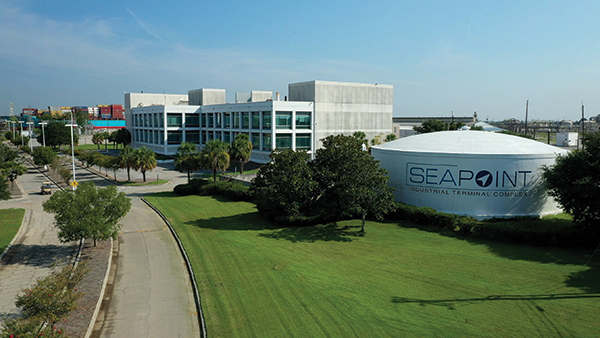Renewable energy is big business in Georgia. Bioenergy projects are slated to pump more than $5 billion into the Peach State economy over the next decade. For starters, Georgia is the leading source of sustainable biomass in the U.S. and is No. 1 in the U.S. for commercial timberland.
Georgia supports investments into renewable energy by awarding a tax credit of up to 10% on increased R&D expenses. This incentive is a big reason why firms such as Q Cells Korea, Exide Technologies, GE Energy, Georgia Power, MAGE Solar, Mitsubishi Turbines, Pratt Industries, Siemens and United Biomass have all made large investments in Georgia.
James Choi, vice president of Q Cells, said, “We are excited to bring our technology leadership to Georgia in manufacturing solar modules and look forward to building long-term relationships to further expand our manufacturing base and contribute to environmentally sustainable energy solutions.”
Other assets that support energy development in the Peach State are a robust talent and education ecosystem, world-class logistics and infrastructure, and some of the most competitive business incentive programs in the country.
Georgia Tech’s Center for Innovative Fuel Cell and Battery Technologies is a resource that companies can tap into for work on improving technology fur ultra-low-emission vehicles, distributed stationary power supplies and wireless energy transmission. And with the Port of Savannah, users have access to the largest single container terminal in North America and two on-terminal Class I railroads in Norfolk Southern and CSX.
Georgia is the leading source of sustainable biomass in the U.S. and is No. 1 in the U.S. for commercial timberland.
Source: GDEcD
Georgia also has the Center of Innovation for Energy Technology, which provides free consultation to Georgia energy firms to help accelerate development of energy solutions.
One of the Georgia Center of Innovation’s priorities is accelerating the development of new products, ideas and business models in the field of energy technology. There are three main focal points of this effort: generation, storage and consumption.
“Georgia’s pro-business environment and support for private-sector innovation continues to pave the way toward a more sustainable future, not only in Georgia but across the world.”
— Georgia Gov. Brian Kemp
Among the ways that the Center of Innovation can help businesses grow are the following:
- In-depth industry expertise to identify and resolve challenges.
- Exposure to new markets and opportunities.
- Collaborative and cutting-edge research with Georgia’s universities.
- Product commercialization assistance.
- Connection to businesses, academic and government resources.
Coming up with alternative sources of energy generation is a key element of the state’s strategy. The Center of Innovation has placed developing viable sources of renewable energy and supporting technologies at the forefront, particularly those that take advantage of local resources like biomass, solar and waste energy.
Related to this research is the ongoing work in waste-to-energy conversion technology. This is giving Georgia communities the increased ability to turn existing organic and inorganic waste into products that can be converted into energy. This effort can also help towns divert waste from landfills, reduce fuel costs for public and private sectors, and create jobs in a new sector.
On the renewable energy front, Georgia is a top 10 state for solar installations. Hanwha Q Cells is a major manufacturer of solar panels in Dalton in North Georgia. In alternative fuels production, Nexus Fuels in Georgia is a leader in converting waste plastics into high-grade feedstock and fuels.
Closely related to this field are the many recycling endeavors statewide. The largest aluminum recycling plant in North America — Novelis, which has its continental headquarters in Atlanta — is also the largest aluminum recycler in the world. The largest glass recycler in North America is Strategic Materials in College Park; and about one-third of all plastic beverage containers recycled in North America end up in Georgia and are turned into carpet.
EF Block Georgia uses Styrofoam to make building materials and is one of 120 Georgia companies that use recycles materials to make their products.
Another large recycler is NANTRenewables, which announced on Oct. 8 that it will invest up to $29 million to build a new bioplastics manufacturing plant on an 8.5-acre, rail-served site at the SeaPoint Complex in Savannah. The new plant will focus production on the company’s biogenic fillers and biodegradable resins, which not only replace hydrocarbon resins but also significantly reduce the carbon footprints associated with mining and processing.

